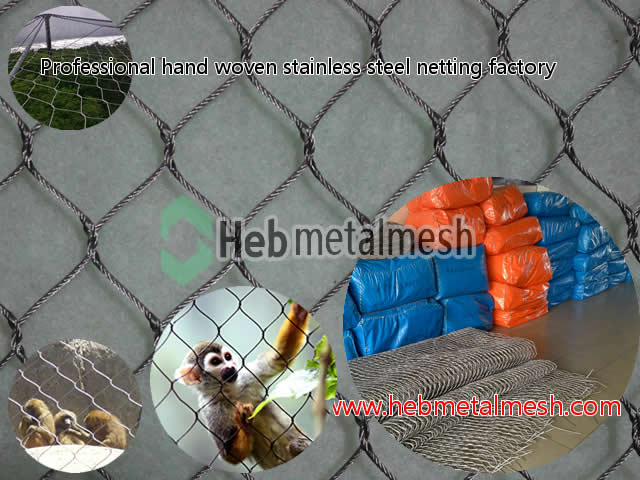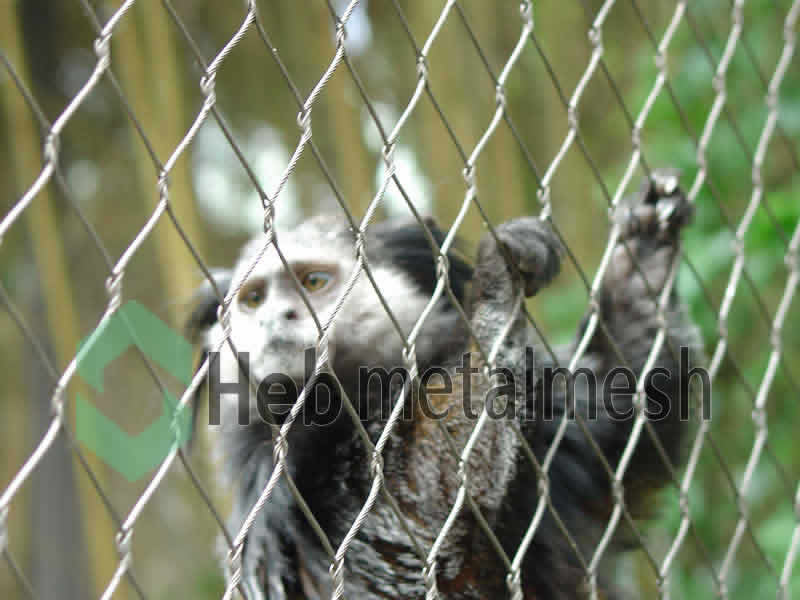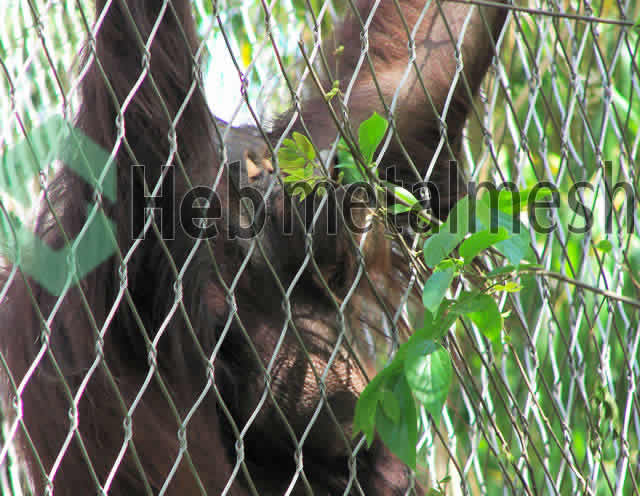Introduction to Customized Fence Panels
Customized fence panels play a crucial role in ensuring the safety and well-being of various types of animals. Unlike standard fencing solutions, which may offer generic barriers, customized options cater to specific requirements, making them particularly effective in preventing escape and unauthorized access. This adaptability is essential for farms, residential properties with pets, and wildlife sanctuaries where the needs of the inhabitants can differ significantly.
One of the inherent limitations of standard fence panels is their uniformity in design and size. For instance, animals such as dogs, goats, or sheep may require different heights and materials to suit their physical capabilities and behavioral tendencies. Customized fence panels can be designed with specific height requirements, ensuring that determined animals cannot jump over or burrow beneath them. This tailored approach provides peace of mind for animal owners concerned about the safety and containment of their pets or livestock.
In addition to height considerations, the mesh options used in customized fence panels are vital for different animal types. For instance, smaller animals, such as rabbits or chickens, necessitate mesh with finer spacing to prevent escape, while larger animals may require sturdier materials to withstand their strength. Customization allows for various mesh sizes and materials, addressing both aesthetic preferences and functional requirements. This level of personalization helps in minimizing risks such as predation or vehicular accidents, reinforcing the notion that a one-size-fits-all solution may not suffice.
By investing in customized fence panels, property owners can create secure environments that cater specifically to the needs of their animals. This bespoke approach not only enhances animal safety but also contributes to a more organized and visually appealing property layout. Through thoughtful customization, each owner can ensure that their fencing solutions align perfectly with the unique challenges they face regarding animal security.
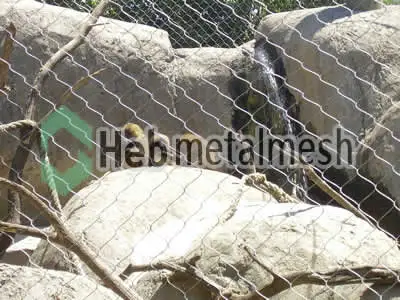
Understanding Your Animal’s Needs
When it comes to designing fence panels that ensure the safety of different types of animals, it is crucial to comprehend the unique needs of each species. Livestock, pets, and wildlife have varying requirements and behaviors that must be addressed during the planning process. For instance, cattle, sheep, and goats are larger animals that may require sturdy, tall fence panels to prevent them from escaping and protect them from predators. Additionally, these animals are often social, so the fencing must not only contain them but also allow for communication with others in their herd.
In contrast, domestic pets such as dogs and cats might have different fence panel needs. Dogs, particularly larger breeds, may require a higher fence with solid construction to prevent jumping or digging, while smaller breeds may need a well-fitted fence to protect against escape or possible encounters with wildlife. Cats, on the other hand, can often scale lower fences, requiring either taller panels or special design features, such as overhanging tops, to keep them secure within a yard.
Wildlife introduce another dimension to fence design. Depending on the species in the area, wildlife fencing may need to include specific measures to deter animals like deer and raccoons that can easily clear traditional fence panels. Mesh fencing options can be particularly useful in these cases, allowing a barrier while enabling visibility and air circulation. It is also essential to consider factors such as the local ecosystem, the heights of different animals, and behaviors such as digging or climbing.
Ultimately, understanding the specific needs of various animals is imperative in the selection and design of fencing solutions. This foundational knowledge not only informs the choice of materials but also plays a vital role in ensuring that the fence panels effectively provide safety and containment for the animals in your care.
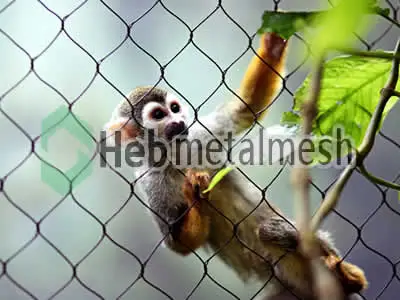
The Importance of Size in Fence Panels
When considering the effectiveness of customized fence panels, size plays a pivotal role in their utility, particularly in the context of animal safety. The dimensions of fence panels, including both height and width, are fundamental determinants of how well they serve their purpose in containing various species. Different animals possess unique physical abilities to jump, climb, or burrow, making it essential to tailor fence panel size to specific needs.
For instance, smaller animals, such as rabbits or chickens, may require shorter fence panels, while larger animals such as goats or deer necessitate taller structures to prevent escape. Standard heights for fencing can range from 4 to 6 feet, however, for more agile species, like raccoons, even 8-foot tall fence panels may not be sufficient, particularly if they can easily climb. In addition to height, the width of the fence panels is crucial in ensuring a secure installation. Adequate overlapping or spacings should be factored into the overall design to thwart potential breaches.
Moreover, the spatial requirements of different animals should not be overlooked, as overcrowding can lead to stress, aggression, and other adverse effects. The layout of the enclosure also influences how the size of the fence panels is determined. For instance, larger enclosures may benefit from panels that are wider, allowing for larger paddocks which can enhance animal welfare.
In essence, the size of customized fence panels is not merely a matter of aesthetics; it is a critical element that directly impacts the effectiveness of the structure in safeguarding animals. Considering each species’ characteristics and needs is vital in designing an effective and secure fencing solution that fulfills its intended purpose.
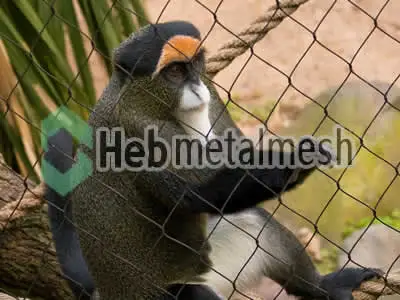
Choosing the Right Mesh for Different Animals
When selecting the appropriate mesh for customized fence panels, it is crucial to consider the specific needs of the animals that will inhabit the area. Various mesh options are available, with each type offering distinct strengths and weaknesses suitable for different species.
Welded wire mesh is a popular choice for a range of animals, including livestock and pets. This type of fencing is constructed from steel wire that has been welded at the intersections, creating a strong and durable barrier. Its tight design deters smaller animals, while the robust structure ensures it withstands weather conditions and physical impacts. However, the installation can be labor-intensive, and it may not be the most cost-effective option for larger areas.
Chain link mesh represents another widely used option, known for its flexibility and affordability. This fencing material consists of interlinked steel wires, creating a sturdy yet somewhat permissive enclosure. It is especially beneficial for larger animals, as it provides visibility and ventilation while still maintaining a secure perimeter. Nonetheless, its limitations include the potential for larger animals to push through if not properly reinforced and its slightly less aesthetic appeal compared to other materials.
Field fencing, also referred to as farm fencing, is designed to contain livestock and is often used in rural areas. This type of customized fence panel combines vertical and horizontal wires, creating a structure that is effective for larger animals such as cattle and horses. The spacing between the wires can be adjusted to suit the specific animals being contained. A drawback to field fencing, however, is that it may not be as effective for smaller animals or pests that can slip through the gaps.
In summary, choosing the right mesh for customized fence panels depends heavily on the animals you aim to secure. Each option—welded wire, chain link, or field fencing—has unique benefits and drawbacks that must be weighed against the specific safety requirements of the animals involved. By carefully assessing these factors, one can ensure optimal protection and functionality for their fencing needs.
Material Options for Customized Fence Panels
Customized fence panels can be constructed from a variety of materials, each with its own unique set of advantages and disadvantages. The primary materials used in the construction of these fence panels are wood, metal, and vinyl. Understanding the properties of these materials can help homeowners select the best option for their needs and preferences.
Wood is one of the most traditional materials used for fence panels. It is often favored for its natural appearance and versatility. Cedar, pine, and redwood are popular choices, offering different aesthetic qualities and pricing. However, wood requires regular maintenance to protect against rot, pests, and the elements. Depending on the climate, it may need to be stained or sealed every few years to maintain its appearance and integrity. Despite these requirements, many homeowners prefer wood for its warmth and natural look.
Metal is another durable and robust option for customized fence panels. Options such as aluminum, wrought iron, and chain link are commonly available. Metal panels offer excellent longevity and can withstand harsh weather conditions. Additionally, they are often lower maintenance compared to wood. However, one downside is that some metal options, like wrought iron, can be prone to rust if not properly coated. On the other hand, aluminum does not rust and provides a modern aesthetic, making it a favored choice among property owners looking for a sleek appearance.
Vinyl fence panels have gained popularity in recent years due to their low-maintenance nature and durability. Unlike wood, vinyl does not require painting or staining and is resistant to both fading and warping. These panels come in various styles and colors, allowing for customization while maintaining a consistent look. However, vinyl may be susceptible to cracking in extreme temperatures, which is a consideration for homeowners in regions with harsh winters or intense heat.
In summary, selecting the right material for customized fence panels requires careful consideration of durability, maintenance requirements, and aesthetics. Each material presents its own benefits and challenges, making it essential for homeowners to evaluate their preferences and the specific needs of their environment. By choosing wisely, one can ensure that the fence panels serve their purpose effectively while enhancing the property’s value and appearance.
Creating a Design Plan for Your Fence
When embarking on the journey to install customized fence panels, developing a solid design plan is crucial. The initial step in this process is measuring the area where the fence will be constructed. Accurate measurements ensure that the fence panels fit effectively within the designated space. Use a measuring tape to establish the length and width of your property line, taking note of any irregularities or turns in the landscape that may affect the fence layout.
Once you have the measurements, it’s essential to determine the placement of the fence panels. Consider the purpose of the fence; whether it’s to provide security, define boundaries, or ensure the safety of animals. Each of these purposes may require different types of panels or configurations. For example, if you are looking to contain pets safely, opting for closer panel placement and smaller mesh openings will provide better protection.
In addition to physical measurements and panel placement, adhering to zoning laws is imperative. Local regulations often dictate the height and type of materials permissible for fence construction. Before finalizing your design, consult with your local authorities to ensure compliance. This step could prevent potential fines or the need to dismantle unauthorized construction later.
Another important aspect is to visualize the final product. Utilizing design software or sketching the layout on paper may help bring your vision to life. This process provides an opportunity to see how different types of fence panels can complement the overall aesthetic of your property. By incorporating the dimensions, chosen materials, and layout into a cohesive design, you can create a wonderful introduction to your space that prioritizes both safety and style.
Installation Tips for Customized Fence Panels
Installing customized fence panels requires careful planning and execution to ensure durability and effectiveness in keeping animals safe. The first step in the process is to gather all necessary tools, which typically include a measuring tape, level, post hole digger, concrete mix, nails or screws, and a hammer or power drill. Additionally, having a fencing guide or manual specific to the panels you have chosen can prove invaluable during installation.
Begin by assessing the area where the fence panels will be installed. This includes measuring the length of the proposed fence line and marking the location of each post. Generally, fence posts should be spaced adequately, typically around 6 to 8 feet apart, depending on the specific design and type of your customized fence panels. It is essential to maintain a consistent measurement to ensure a sturdy and aligned structure.
Next, dig post holes to a depth of at least one-third the height of the fence panels, ensuring the posts will be anchored securely. If you are in a region with strong winds or heavy animals, consider deeper holes for enhanced stability. Position the fence posts in the holes, and use a level to ensure they are straight before pouring in the concrete mix. Allow the concrete to set according to the manufacturer’s instructions before attaching the fence panels.
When attaching the customized fence panels, ensure that the material aligns properly with the posts. Employ either nails or screws for fastening, and be cautious not to overtighten as this may damage the panels. After the panels are installed, inspect the overall structure for stability and make any necessary adjustments. Finally, consider adding safety features such as caps or protective finishes to increase the longevity of your customized fence panels.
Maintenance and Care for Your Fence Panels
Proper maintenance and care for customized fence panels are essential for ensuring their longevity and effectiveness in providing safety for your animals. Various factors can affect the conditions of your fence, such as weather, wear, and environmental impacts. Therefore, regular inspections and upkeep are crucial.
Seasonal maintenance tasks play a significant role in prolonging the life of your fence panels. In the autumn, it is essential to clear any debris like leaves and branches from the area surrounding your fence. This not only prevents rot and pests but also enables better visibility for any potential damage. During spring, it is advisable to inspect the fence for any winter-related wear and tear. Look for loose panels or areas where the mesh may have been compromised. Promptly addressing these issues can prevent bigger problems down the line.
Cleaning your fence panels is another vital aspect of maintenance. Depending on the material—wood, vinyl, or metal—different cleaning methods may be recommended. For wooden panels, removing dirt or algae with a soft brush and mild detergent is often sufficient. Metal or vinyl panels can be hosed down, and for tough stains, a pressure washer may be employed cautiously. Always ensure any cleaning agents used are safe for the material and environment.
Monitoring for damage is crucial in maintaining safe and functional fence panels. Regularly check for rust in metal fences, splintering in wood, or fading in vinyl. Early identification of issues allows for quick repairs that can enhance the durability of your installed fence. Any significant damage should be addressed immediately, whether it requires repair, reinforcement, or replacement of specific panels. By actively participating in the ongoing care of your customized fence panels, you can ensure both their aesthetic appeal and functionality for years to come.
Conclusion: Investing in Customized Fence Panels
In contemplating the welfare of your animals, investing in customized fence panels is a decision that promises numerous benefits. Tailored solutions in fencing offer enhanced safety, security, and peace of mind, which are paramount for pet owners and livestock caretakers alike. One of the main advantages of customized options is the ability to address specific needs based on the type of animals being contained, their size, and behavioral tendencies.
Customized fence panels are designed to fit the unique space and requirements of your property, ensuring that each area is effectively secured. This level of customization helps prevent escapes and protects animals from external threats such as predators, contributing to their overall wellbeing. Such panels can be designed with appropriate height, mesh strength, and spacing, catering to various species from small pets to larger livestock.
Moreover, the investments made in customized fence panels yield long-term benefits. Not only do they offer immediate safety improvements, but they also reduce maintenance efforts and potential costs associated with breaches or damage. Durable materials are often employed in the production of these tailored solutions, ensuring longevity against environmental elements, which greatly reduces the need for frequent repairs or replacements.
Ultimately, prioritizing the safety of your animals should drive your decision-making process. As you explore options for fence panels, consider the particular characteristics and behaviors of your animals, alongside your property’s layout. This planning phase can lead to better outcomes, ensuring that your investment in customized fence panels is both practical and beneficial for years to come. Whether you own a small garden with pets or a full-scale farm, the correct fencing solution is fundamental in providing a safe habitat for all your creatures.
